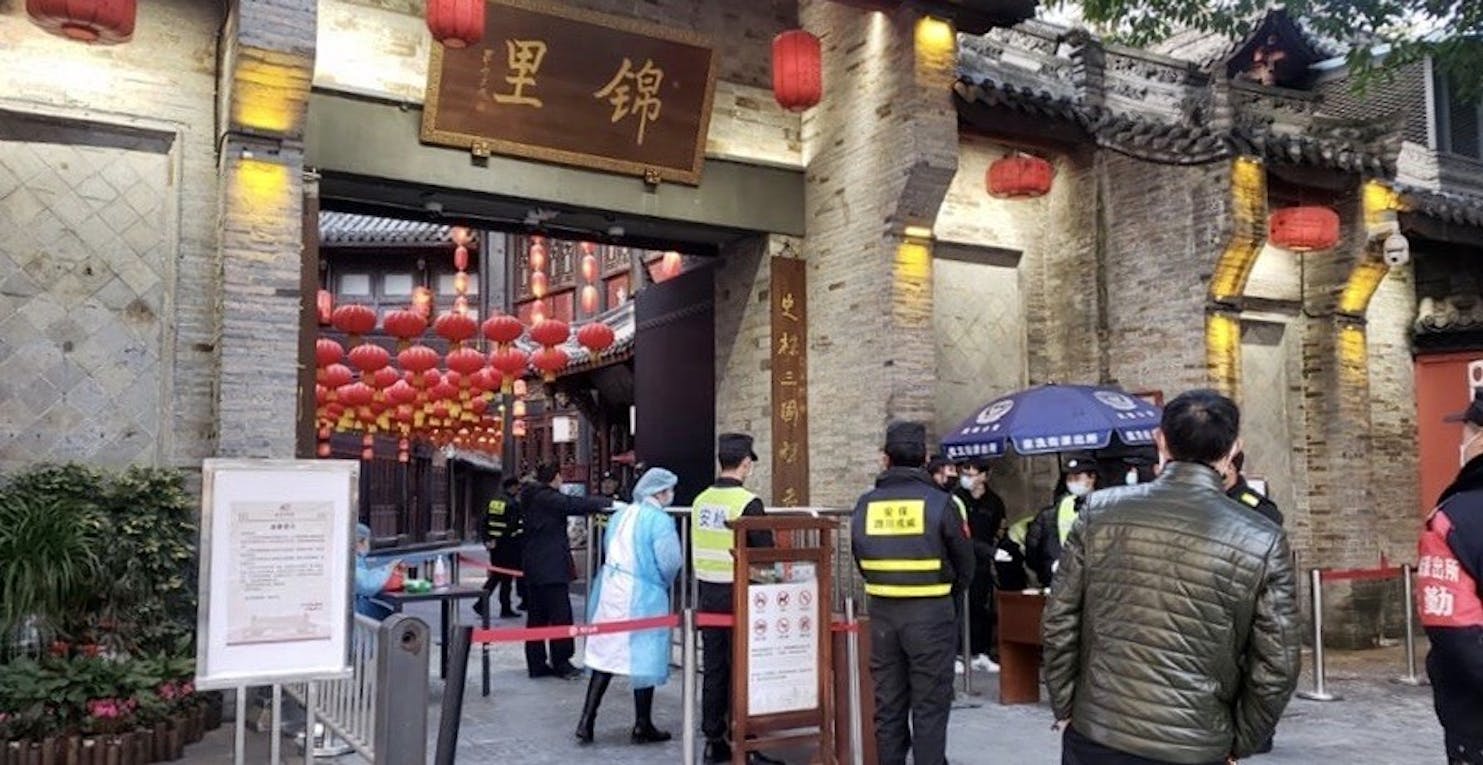17 students studying abroad in Italy, China forced to evacuate

Central Michigan University students pose at the Vatican in front of St. Peter's Basilica. (Photo courtesy of Maddison Goulet)
After one month of studying at Florence University of the Arts in Florence, Italy, Maddison Goulet and her three roommates went on a weekend getaway to Nice, France.
Asleep in their hostel, at 7 a.m. Saturday, Feb. 29, Goulet, a Livonia sophomore, woke up to one of her roommates yelling, “Oh my God, they’re sending us home!"
An email from Central Michigan University instructed them to return to the United States immediately because Italy designated a level-three coronavirus warning.
"You must make immediate plans to leave the country,” Dianne Desalvo, director of the study abroad office, wrote in the email. "Please contact the airline to request a ticket change for departure as soon as possible."
Covid-19 is a specific strain of coronavirus that originated in bats in Wuhan, China. Typically, the effects people experience from the virus are similar to the common cold, according to George Kikano, dean of the College of Medicine.
Out of 153 students who planned on studying abroad during the Spring 2020 semester, only 59 Central Michigan University students will still be able to.
Due to the Center for Disease Control and Prevention's recommendations regarding the coronavirus, CMU students spending the semester in China, South Korea or Italy were instructed to evacuate. Sixteen CMU students studying abroad in Florence were instructed to get a flight out of the country and self-quarantine themselves for 14 days.
When they were first instructed to leave the country, the students were given little to no information about refunds and finishing their courses, Goulet said.
On March 5, the group received an email from Marko Schubert, assistant director of study abroad, that discussed the remainder of the semester.
"These circumstances will force institutions like FUA to offer as many courses as possible online as teaching on campus is not an option anymore under the current circumstances," Schubert said in the email. "Earlier this week – before the decision to close – they let us know that we can expect a list of classes that can be switched to an online format by (March 6)."
Once the list of courses becomes available, students will have the opportunity to work with Schubert individually to find alternatives for the FUA courses or work with CMU faculty to help finish courses that can't be offered online.
The email offered more information on possible travel and program refunds for the affected students.
"President Davies authorized funds to cover potential refunds for students who had to leave their programs early," the email read. "He also made funds available to help with the burden of airline ticket change fees, so please keep your receipts in case you paid a fee to get your ticket changed."
The group from Florence flew back to the U.S. throughout the first week of March, although the program was supposed to end in May.
“The fact that they told us we had sufficient time to learn about the country (and) appreciate the culture really made me angry, because yes we had time to do that, but we didn’t have the amount of time we predicted,” Chicago sophomore Bridget Peterson said. “I’m supposed to have three more months to appreciate the culture.”
Brighton senior Jacquelyn Peters felt the same way about her own study abroad trip in Chengdu, China that started in early January.
"As the virus became more known in China, around the third week of January, we were told not to worry about it too much, so we didn't," Peters said. "Around that time I was contacted by USAC (University Studies Abroad Consortium), CMU and the U.S. Government through the STEP program about the danger of the disease but was also told not to worry about it too much."
About a week later, just before the Chinese New Year at the end of January, Peters was told to stay out of Wuhan and the Hubei region.
"School was going to be closed for a week due to the holiday and all of the locals were returning home to be with family, so most of the city was going to be closed," she said. "Naturally a lot of students wanted to travel during this time, including me. Thankfully, I canceled all of my travel plans a couple of days before the holiday began."
As the week-long break began, Peters started planning local trips to different towns around the province with her friends because they figured with most people out of Chengdu and the surrounding area, it would be safe.
"Those plans didn't last long because the virus became more aggressive each day," Peters said. "By Monday and Tuesday, guards became more common around the city, and I couldn't enter campus, where me and all other international students lived, without my Chinese student ID and a mandatory temperature check."

Guard stations were set up outside of Walmart and other public places to check the temperatures of people entering, according to Peters.
"Everybody who checked your temperature was a cop. They were typically accompanied by other cops with large guns visible," Peters said. "It was also very common to see guards walking around in full SWAT gear, especially in more touristy/public places."
On Wednesday of that week, University Studies Abroad Consortium, the company that CMU goes through for the Chinese study abroad program, told the students that the program was canceled. But they could wait it out if they wanted.
"Nearly everybody in the program wanted to wait it out, but just a few hours later, by mid-day Wednesday, we were told that we had no choice and had to leave campus by next Thursday," Peters said. "I booked my plane ticket home that Friday."
Peters was given a full refund for her program. CMU promised she would have classes to take so she could still graduate on time.
"I really didn't want to spend my last college semester at my parents' home doing online classes," Peters said. "So me and nine others from China transferred to one of the only programs that would take us, which is in Uruguay."
Peters was the only CMU student studying abroad in China this semester.
The eight or nine students scheduled to study abroad in South Korea, which is now canceled, were supposed to leave in March, according to Desalvo.
Desalvo said the students who are still studying abroad will continue to be closely monitored.






